About This Project
Today, we’re diving into one of the most fundamental aspects of human existence. This topic impacts every single person, regardless of background or beliefs: the sanctity of human life as revealed in God’s Word. We’ll discover how these ancient texts provide the framework for our entire justice system and emphasize the sacredness of human life, each person being made in the image of God.
I’m Tim, and I’m thrilled to have you join us as we delve into the profound truths of the Torah. Explore what happens when this sacred image is harmed or mistreated and uncover the wisdom that God’s Word offers on this matter.
This season, we’re exploring the foundational teachings of Genesis, Exodus, Leviticus, Numbers, and Deuteronomy and how they shape our understanding of justice and human life.
Take advantage of this enriching discussion! Join us as we explore topics such as capital punishment, the significance of the Ten Amendments of the Constitution influenced by the Torah, and the purpose of God’s Law in guiding our lives.
Start your journey with us at [0:00], and let’s dive deep into the sanctity of human life in God’s Word, Torah.
🔍 Key Points:
▶ The Sanctity of Human Life in God’s Word the Torah [1:58]
▶ Exploring the connection between the Torah and the US Justice System [20:21]
▶ Unveiling the truth about laws concerning proportional punishment and protection of the vulnerable [42:29]
▶ Understanding the significance of Cities of Refuge as a form of Due Process [30:51]
▶ Shedding light on unsolved murders and the shedding of innocent blood [45:14]
Welcome to Season Seven, Part 13 of “The Deep Dive” as we continue our journey through Torah. Don’t miss out—let’s dive in together!
☑️ You can partner with us to get the message out with a one-time gift at Tim Hatch Live Support OR on the Cash App with cashtag: $timhatchlive
💥 Become a monthly partner and enjoy loads of exclusive channel perks at Tim Hatch Live Patreon
✳20% of all giving will be tithed back out to The American Bible Society and Project Rescue.
Start [0:00]
▶ The Sanctity of Human Life in God’s Word the Torah [1:58]
▶ Why is there a statue of Moses in the Gable of the Supreme Court Building? [3:39]
▶ What is God’s perspective on the Sanctity of Human Life? [5:00]
▶ Does God agree with Capital Punishment? [10:15]
▶ Should the death penalty be abolished? [13:15]
▶ Pastor reveals the truth about crime and punishment [16:15]
▶ How did the Torah affect the 10 Amendments of the Constitution? [17:15]
▶ How is the Torah the underlying philosophy of the US Justice System? [20:21]
▶ Why are there turtles on the lampposts in front of the Supreme Court? [28:15]
▶ Pastor explains Cities of Refuge as a form of Due Process [30:51]
▶ What are laws concerning proportional punishment in the Bible Torah? [42:29]
▶ What are laws protecting the vulnerable in the Bible Torah? [19:56]
▶ What are laws concerning unsolved murders and death in the Bible Torah? [45:14]
▶ Pastor explains the shedding of innocent blood [47:15]
▶ Was abortion accepted in historic Christianity? [47:42]
▶ What is the purpose of God’s Law? [48:45]
Genesis 9:6 (ESV) “Whoever sheds the blood of man, by man shall his blood be shed, for God made man in his own image
No Death Penalty:
- Declares punishing the murderer with death is the same as what the murderer did.
- Belittles human life. By protecting the one who deliberately took human life.
- Provides opportunity for the murderer to keep killing or causing harm (think prison riot/escape/guard abuse).
- Affirms satan who is deemed a “murderer from the beginning” (John 8:44)
In Truth: Crime and Punishment are often complicated situations that require nuanced examination of facts, withholding of instant retribution and fair-minded people involved in the process of determining justice.
5th Amendment: Due Process

6th Amendment: Speedy and Public Trial

8th Amend: Cruel and Unusual Punishment

14th Amendment: Due Process Extended
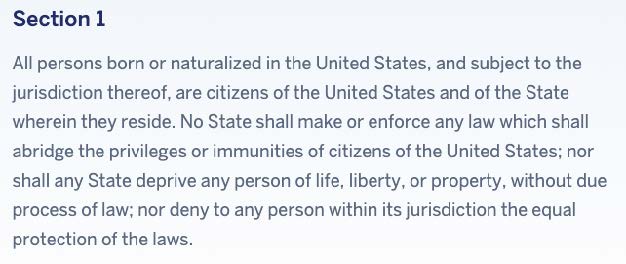
Amazingly, the 3500 year old text of Torah was and remains the underlying philosophy of our modern procedures intended to arrive at justice.
Laws Concerning Intention & Premeditation:
Exodus 21:12–14 (ESV) “Whoever strikes a man so that he dies shall be put to death. 13 But if he did not lie in wait for him, but God let him fall into his hand, then I will appoint for you a place to which he may flee. 14 But if a man willfully attacks another to kill him by cunning, you shall take him from my altar, that he may die.
Laws Concerning Partiality:
Leviticus 19:15 (ESV) “You shall do no injustice in court. You shall not be partial to the poor or defer to the great, but in righteousness shall you judge your neighbor.
Laws Concerning Fair Trial of one’s Peers:
Deuteronomy 19:15 (ESV) “A single witness shall not suffice against a person for any crime or for any wrong in connection with any offense that he has committed. Only on the evidence of two witnesses or of three witnesses shall a charge be established.
Laws Concerning Due Process:
Numbers 35:30 (ESV) “If anyone kills a person, the murderer shall be put to death on the evidence of witnesses. But no person shall be put to death on the testimony of one witness.
Deuteronomy 17:6 (ESV) On the evidence of two witnesses or of three witnesses the one who is to die shall be put to death; a person shall not be put to death on the evidence of one witness.
Cities of Refuge – a form of Due Process
Numbers 35:9–15 (ESV) And the Lord spoke to Moses, saying, 10 “Speak to the people of Israel and say to them, When you cross the Jordan into the land of Canaan, 11 then you shall select cities to be cities of refuge for you, that the manslayer who kills any person without intent may flee there. 12 The cities shall be for you a refuge from the avenger, that the manslayer may not die until he stands before the congregation for judgment. 13 And the cities that you give shall be your six cities of refuge. 14 You shall give three cities beyond the Jordan, and three cities in the land of Canaan, to be cities of refuge. 15 These six cities shall be for refuge for the people of Israel, and for the stranger and for the sojourner among them, that anyone who kills any person without intent may flee there.
Numbers 35:22–24 (ESV) “But if he pushed him suddenly without enmity, or hurled anything on him without lying in wait 23 or used a stone that could cause death, and without seeing him dropped it on him, so that he died, though he was not his enemy and did not seek his harm, 24 then the congregation shall judge between the manslayer and the avenger of blood, in accordance with these rules.
Numbers 35:25–29 (ESV) And the congregation shall rescue the manslayer from the hand of the avenger of blood, and the congregation shall restore him to his city of refuge to which he had fled, and he shall live in it until the death of the high priest who was anointed with the holy oil. 26 But if the manslayer shall at any time go beyond the boundaries of his city of refuge to which he fled, 27 and the avenger of blood finds him outside the boundaries of his city of refuge, and the avenger of blood kills the manslayer, he shall not be guilty of blood. 28 For he must remain in his city of refuge until the death of the high priest, but after the death of the high priest the manslayer may return to the land of his possession. 29 And these things shall be for a statute and rule for you throughout your generations in all your dwelling places.
Cities of Refuge
Joshua 20:7-8 (ESV) So they set apart Kedesh in Galilee in the hill country of Naphtali, and Shechem in the hill country of Ephraim, and Kiriath-arba (that is, Hebron) in the hill country of Judah. 8 And beyond the Jordan east of Jericho, they appointed Bezer in the wilderness on the tableland, from the tribe of Reuben, and Ramoth in Gilead, from the tribe of Gad, and Golan in Bashan, from the tribe of Manasseh.
- Kadesh – “holiness” : Jesus is holy and makes us holy.
- Shechem -“shoulder” or “strength”. Jesus is our strength.
- Hebron – “Fellowship” : We have fellowship in the beloved.
- Bezer – “Stronghold” : Jesus is our stronghold (Psalms 27:1-2)
- Ramoth – Exalted : Jesus is high and lifted up & lifts us up.
- Golan -“Separated” : Jesus separates us unto God. (John 17)
Laws Concerning Proportional Punishment:
Exodus 21:23–25 (ESV) But if there is harm, then you shall pay life for life, 24 eye for eye, tooth for tooth, hand for hand, foot for foot, 25 burn for burn, wound for wound, stripe for stripe.
Deuteronomy 16:20 (ESV) Justice, and only justice, you shall follow, that you may live and inherit the land that the Lord your God is giving you.
Laws Concerning Protecting the Vulnerable
Exodus 22:22–24 (ESV) You shall not mistreat any widow or fatherless child. 23 If you do mistreat them, and they cry out to me, I will surely hear their cry, 24 and my wrath will burn, and I will kill you with the sword, and your wives shall become widows and your children fatherless.
Unsolved Murder/Death
Deuteronomy 21:1–4 (ESV) “If in the land that the Lord your God is giving you to possess someone is found slain, lying in the open country, and it is not known who killed him, 2 then your elders and your judges shall come out, and they shall measure the distance to the surrounding cities. 3 And the elders of the city that is nearest to the slain man shall take a heifer that has never been worked and that has not pulled in a yoke. 4 And the elders of that city shall bring the heifer down to a valley with running water, which is neither plowed nor sown, and shall break the heifer’s neck there in the valley.
Unsolved Murder/Death
Deuteronomy 21:5–9 (ESV) Then the priests, the sons of Levi, shall come forward, for the Lord your God has chosen them to minister to him and to bless in the name of the Lord, and by their word every dispute and every assault shall be settled. 6 And all the elders of that city nearest to the slain man shall wash their hands over the heifer whose neck was broken in the valley, 7 and they shall testify, ‘Our hands did not shed this blood, nor did our eyes see it shed. 8 Accept atonement, O Lord, for your people Israel, whom you have redeemed, and do not set the guilt of innocent blood in the midst of your people Israel, so that their blood guilt be atoned for.’ 9 So you shall purge the guilt of innocent blood from your midst, when you do what is right in the sight of the Lord.
Unborn Lives
Exodus 21:22–25 (ESV) “When men strive together and hit a pregnant woman, so that her children come out, but there is no harm, the one who hit her shall surely be fined, as the woman’s husband shall impose on him, and he shall pay as the judges determine. 23 But if there is harm, then you shall pay life for life, 24 eye for eye, tooth for tooth, hand for hand, foot for foot, 25 burn for burn, wound for wound, stripe for stripe.
God’s Law is intended to protect, dignify, and exalt the value of human life. A culture of death brings the wrath of God upon itself.
Isaiah 24:4–6 (ESV) The earth mourns and withers; the world languishes and withers; the highest people of the earth languish. 5 The earth lies defiled under its inhabitants; for they have transgressed the laws, violated the statutes, broken the everlasting covenant. 6 Therefore a curse devours the earth, and its inhabitants suffer for their guilt; therefore the inhabitants of the earth are scorched, and few men are left.
It Starts with Anger
James 1:19–21 (ESV) Know this, my beloved brothers: let every person be quick to hear, slow to speak, slow to anger; 20 for the anger of man does not produce the righteousness of God. 21 Therefore put away all filthiness and rampant wickedness and receive with meekness the implanted word, which is able to save your souls.
It Leads to Hatred
1 John 3:15 (ESV) Everyone who hates his brother is a murderer, and you know that no murderer has eternal life abiding in him.
It Ends in Death
Matthew 5:21–22 (ESV) “You have heard that it was said to those of old, ‘You shall not murder; and whoever murders will be liable to judgment.’ 22 But I say to you that everyone who is angry with his brother will be liable to judgment; whoever insults his brother will be liable to the council; and whoever says, ‘You fool!’ will be liable to the hell of fire.
The Only Hope:
Matthew 5:23–26 (ESV) So if you are offering your gift at the altar and there remember that your brother has something against you, 24 leave your gift there before the altar and go. First be reconciled to your brother, and then come and offer your gift. 25 Come to terms quickly with your accuser while you are going with him to court, lest your accuser hand you over to the judge, and the judge to the guard, and you be put in prison. 26 Truly, I say to you, you will never get out until you have paid the last penny.
God’s Plan: Peace-Making:
Matthew 5:38–42 (ESV) “You have heard that it was said, ‘An eye for an eye and a tooth for a tooth.’ 39 But I say to you, Do not resist the one who is evil. But if anyone slaps you on the right cheek, turn to him the other also. 40 And if anyone would sue you and take your tunic, let him have your cloak as well. 41 And if anyone forces you to go one mile, go with him two miles. 42 Give to the one who begs from you, and do not refuse the one who would borrow from you.
What Can We Conclude:
- God’s image is in the human person.
- Human life is sacred.
- Punishment must suit the crime.
- Reconciliation is the ultimate aim of the Gospel.
- Peace in our hearts should produce peace in our communities.
Questions for Further Study:
-
Reflecting on Genesis 9:6, how does the concept of humanity being made in the image of God influence our understanding of the sanctity of human life? How does this perspective shape our views on justice and punishment?
-
In light of the discussion on the connection between the Torah and the US Justice System, how can we ensure that our legal systems uphold the sacredness of human life and reflect God’s principles of justice?
-
Considering the verses from James, 1 John, and Matthew, how does anger, hatred, and conflict relate to the sanctity of human life? How can we apply the teachings of Scripture to promote peace and reconciliation in our relationships and communities?
-
Discuss the concept of “peace-making” as outlined in Matthew 5:38–42. How does this approach align with God’s plan for humanity and the sanctity of human life? How can we embody this principle in our interactions with others?
-
Reflecting on the key points presented, what practical steps can we take as individuals and as a community to uphold the sanctity of human life and promote justice and reconciliation in our society? How can we integrate these principles into our daily lives and decision-making processes?
⬇️ Tim Hatch Live ⬇️
🎙 The Deep End dives deeper into Faith, Politics, Bible, & the world, Tues 7:30p & on your favorite podcast app
📖 Deep Dive Bible Study Kings of Compromise, Weds 7:30p
❓10 Questions with Tim, Q&A segment providing answers, LIVE 1st Thurs, Noon
👉 Ask Anything email ask@timhatchlive.com
🔵 WATCH MORE
🔵 BOOKS
🔵 SWAG
🔵 RUMBLE
🔵 FACEBOOK
🔵 TWITTER
🔵 INSTAGRAM
🔵 TIKTOK





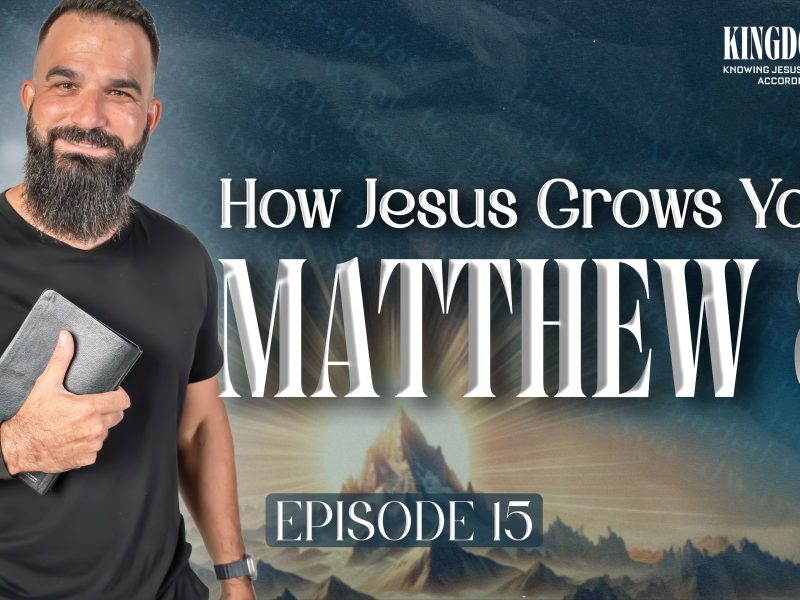

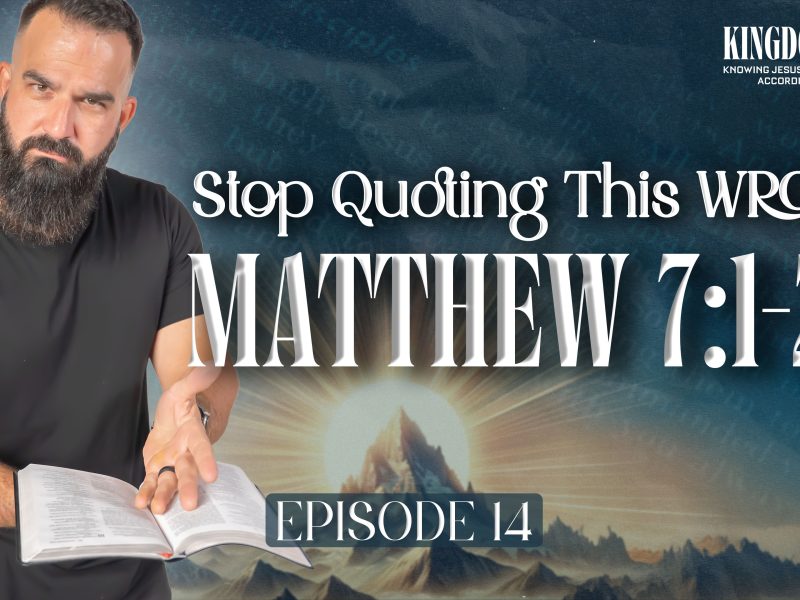
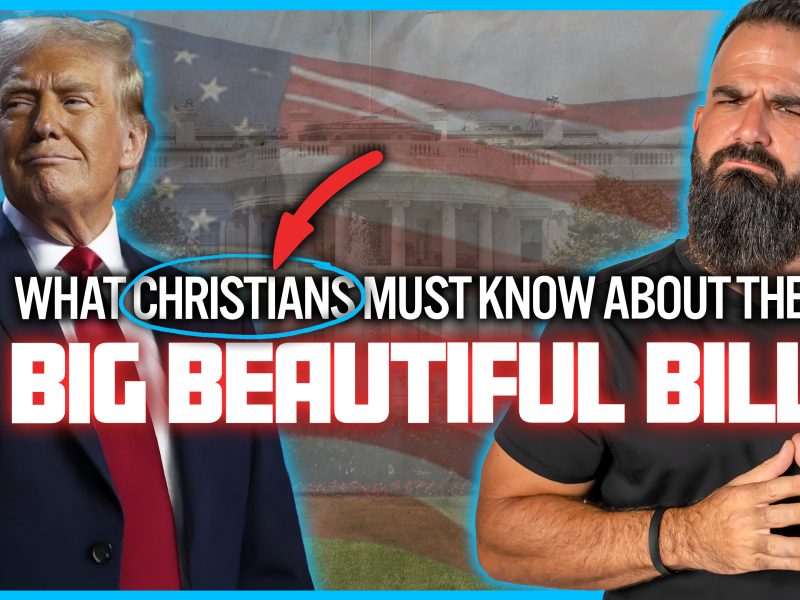
No Comments